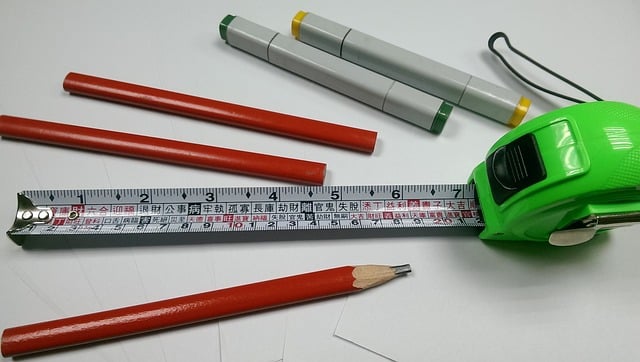Securing a contractor license bond and insurance protection safeguards a business from financial loss and daily risks, plus assures clients that all contractual obligations will be met. Go here for details on bonding and liability insurance.
The primary difference between bonds and insurance is where the funds go when a claim is filed. The obligee receives compensation with a bond, and the insured is compensated with insurance protection.
Policyholders are protected from monetary loss with their insurance plan, and bonds protect the public or the consumer from monetary loss when a contractor is guilty of misconduct or noncompliance.
Understanding the distinction is essential since each component is mandated to ensure legal or contractual compliance.
As a smaller business, securing the proper bonds and insurance builds credibility and earns trust with the public, setting the company apart from the competition and helping with growth and development.
Steps for Becoming Bonded and Insured
Becoming familiar with How to get bonded and insured can seem overwhelming unless you follow more manageable steps. Here is a more simplified plan to ensure your success when securing your bonding and insurance.
Research Rules and Regulations
Local rules and regulations will vary vastly for bonding and insurance from one state to the next and industrywide. Doing due diligence in research will prepare you for the regulations in your industry. Construction, for example, may need to obtain specific licenses or permits under a mandatory bond requirement.
When you become familiar with the rules, the obligations will be met, preventing the possibility of penalties and legal expenses.
Determine Insurance Risks/budget
Evaluating your business operations for risks, including property loss or potential liabilities, will help determine your insurance needs. When budgeting for coverage, this will include not only the premium but also consider coverage limits suited to your business and deductibles.
Insurance coverage should be routinely evaluated to ensure the plans align with company needs and associated risks.
Contact Surety Companies and Insurance Carriers
Securing the proper bond for your business involves reaching out to a broker specializing in surety bonds. Most bonding companies use brokers or agents to issue surety bonds from whom you can get an accurate quote and adequate insurance coverage fit for your business needs.
Applications and Coverage
Before the purchase can be finalized, the terms and conditions of the policies should be thoroughly reviewed. You should be fully aware of your protections and commitments to prevent the possibility of any surprises down the road.
Types Of Small Business Bonds
Various bond types are available to small businesses based on the nature of their operations. Bonds financially guarantee that the contractor will fulfill their obligation. These can include the following:
Surety Bonds
Three parties comprise a surety bond. These include:
1. The surety: the company issuing the bond.
2. The principal: the business buying the bond.
3. The obligee: The client requiring the bond.
The surety bond is vital for both private and public contracts, where a guarantee states that the project will be completed as contracted.
License and Permit Bonds
This type of bond guarantees a legal business operation that follows compliance with local and state regulations. Often, these are required when obtaining a construction permit or license, particularly in professions where the injury risk is higher.
Contract Bonds
A business guaranteeing to protect the consumer from substandard or incomplete projects, promising the terms of the contract will be fulfilled, will obtain a contract bond.
A construction company would acquire a bid bond, for example, to bid on a job. This lets the client know they will be compensated if the business is unable to start work.
Fidelity Bonds
When staff acts fraudulently against a business, a fidelity bond protects the company from financial loss. The bond covers damage or theft caused by inappropriate employee behavior.
Types of Small Business Insurance Plans
Insurance coverage for businesses safeguards the company from liability due to property damage, injury, theft, or other risks. Different coverage types include general liability, workers comp, umbrella coverage, and commercial auto.
General liability
General liability is typically a first policy obtained by most businesses due to the affordability and vast coverage, including property damage, bodily injury, personal injury such as slander/libel, protection for legal and medical expenses that come with these damages.
Workers’ comp
Workers’ comp covers lost wages and medical expenses for staff hurt at work. It is typically mandated for most states to ensure that work-related illnesses or injuries are protected.
Commercial auto
Business operations requiring vehicles need commercial auto coverage for potential bodily injury or property damage from incidents or accidents involving a company-owned auto.
Umbrella insurance
Commercial umbrella insurance intends to extend liability coverage limits for certain policies, claims that go beyond the boundaries of the original policy. Added protection is critical if a severe accident surpasses the standard limits.
Cost To Get Bonded and Insured
A few variables, including the following, can impact the cost of bonding and insurance:
1. Bond type
2. Level of coverage
3. Deductibles
4. Profession
5. Business location
Because the costs can vary, you want to compare quotes from a few providers to get the best coverage for reasonable rates. On average, small business bond premiums range between 1 percent and 5 percent of the bond’s total cost.
Benefits of Bonding and Insurance

Becoming bonded and insured offers businesses a few benefits, primarily a solid dedication to accountability and professionalism.
Establishing Credibility and Earning Trust
Bonding and insurance coverage speaks to the consumer that you are legitimate and trustworthy; you can exceed expectations, fulfill obligations. It helps develop a solid professional relationship and encourages return customers.
Financial Safeguard
Bond insurance protects your business from financial loss, including the following potential situations:
1. Accidents
2. Lawsuit/claims
3. Legal fees
4. Damages
The financial safeguard is vital for business sustainability and risk management.
Business Opportunities
Obtaining bonding and insurance can mean the difference between acquiring new business from competitors who don’t take the time to gain these credentials. It opens opportunities to reach a vast audience, allowing your company greater expansion and success.










